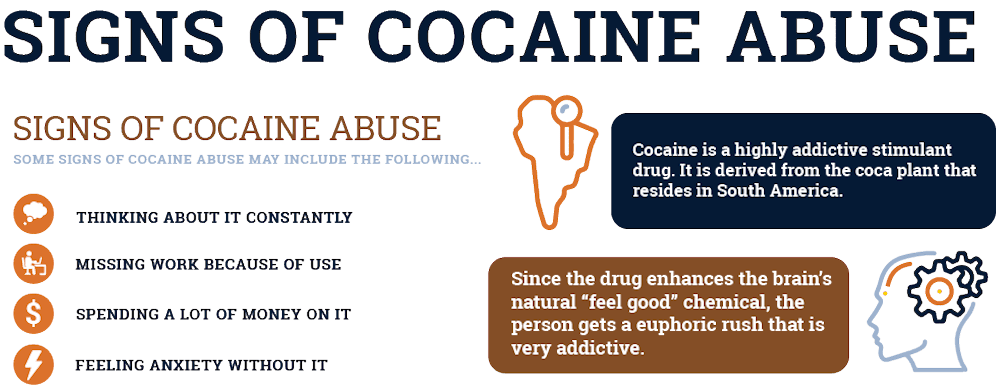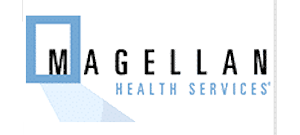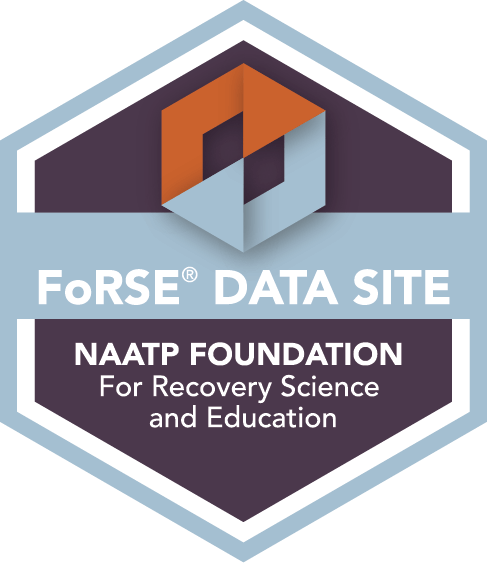Illinois joins together industry and culture in a diverse setting. Home to Chicago, one of the most populated cities in the United States, Northern Illinois is a hub of traffic and excitement. However, along with the positive aspects of the area, there is also a high amount of drug usage.
Whether it’s heroin, meth, cocaine, or benzos, the Northern Illinois area has its struggles with drug addiction. According to the National Institute on Drug Abuse, cocaine is one of the most widely abused drugs in the Chicago area of Northern Illinois. Luckily, help is available due to the presence of various treatment centers for drug addiction. Finding the right substance abuse treatment programs is the first step in healing, and Northern Illinois Recovery Center can help.
In terms of appearance, cocaine is a white, powdery substance that looks similar to baby powder or very white flour. This drug is often mixed with powders such as flour, baby powder, baking soda, or cornstarch to make supplies stretch and increase dealers’ profits. There is also a risk of cocaine being mixed with other drugs. Someone purchasing what they believe is pure cocaine may also be buying a drug mixed with amphetamines, local anesthetics such as procaine, or even the highly dangerous fentanyl.


How Do People Use Cocaine?
One of the most concerning uses of cocaine is injection. Some users will mix cocaine with water and inject it intravenously (into a vein) to feel more heightened effects of cocaine. Smoking cocaine is another highly concerning method of administering this drug, as smoking cocaine can produce the same heightened effects as injection. Cocaine that has been converted into crack cocaine is often smoked. These methods are particularly dangerous and can easily lead to the absorption of toxic amounts of cocaine.
The Addictive Nature of Cocaine
Additionally, since cocaine is a stimulant, it can give someone a burst of energy and cause them to feel like they can accomplish many things. This may reinforce the idea that abusing cocaine is not a serious problem and can lead to more cocaine abuse. However, cocaine abuse is very serious and can lead to serious health consequences (including significant changes to the brain).

Signs and Symptoms of Cocaine Abuse
However, there are some clues that a person is becoming addicted and needs cocaine addiction treatment programs. These include:
- Thinking about doing cocaine all the time
- Feeling anxious if you think about quitting
- Missing work or social events because of drug use
- Experiencing cocaine cravings when not using the drug
- Going through a lot of money to abuse cocaine regularly
- Borrowing money to engage in the substance abuse of cocaine

If you are ready to seek treatment, contact us today at Northern Illinois Recovery Center. We’ll help you take that first step on the pathway to healing.
Short and Long-Term Effects of Cocaine Abuse
Many negative short-term effects result from using cocaine. Once cocaine enters the body, the following side effects can occur immediately:
- Vertigo
- Anxiety
- Irritability
- Tremors
- Paranoia
- Restlessness
- Dilated pupils
- Violent feelings
- Muscle twitches
- Increased heart rate
- Increased blood pressure
- Constricted blood vessels
- Increased body temperature
- Sensitivity to light, sound, or touch
- Potentially bizarre or erratic behavior
Some of these effects can lead to serious and immediate health complications. Serious consequences such as seizures, heart attacks, and strokes can occur due to frequent use resulting from cocaine addiction. Additionally, cocaine mixed with alcohol can produce toxic effects on the human heart. These effects are why it’s important to seek treatment support (usually in the form of rehab for cocaine addiction) if you are unable to stop using cocaine.


Long-Term Effects of Cocaine Abuse
Sustained cocaine use can cause many different physiological effects. Over time, chronic cocaine abuse can cause the following long-term side effects:
- Increased irritability, paranoia, and panic attacks
- Worsening of an existing mental illness due to cocaine use
- Cocaine withdrawal symptoms, such as irritability or prolonged low mood, occur when the drug isn’t consumed
- An increase in tolerance, resulting in the need to use larger quantities of cocaine to feel the same effects
- Development of psychosis and related symptoms, such as hallucinations and a loss of touch with reality
As time goes on, these adverse effects generally become worse. This is usually because individuals begin to take more of the drug to try and alleviate the unpleasant withdrawal effects of not consuming cocaine. Unfortunately, this only makes the effects worse and increases the chances of death from toxic amounts of cocaine in the body.
Insurance Verification




Treatments Offered by Cocaine Addiction Rehabs
Cocaine Addiction Treatment Options
Once withdrawal symptoms subside, individuals experiencing cocaine addiction can begin one of the following treatment programs:
- Residential Treatment: Residential treatment in Illinois, also known as inpatient treatment programs, provides 24-hour care and supervision for people suffering from cocaine addiction. This is usually the first treatment program that patients attend before moving to a less intensive level of care.
- Partial Hospitalization Programs: Also known as PHPs, this type of substance abuse treatment program benefits patients who need a higher level of care than traditional outpatient yet cannot commit to residential rehab programs.
- Intensive Outpatient Treatment: Also referred to as an IOP, this type of program, offered at addiction treatment centers, provides a level of care between a PHP and traditional outpatient.
- Outpatient Treatment: Outpatient treatment at a drug rehab allows patients to receive care during the day and return home after. This is a great form of addiction treatment for patients who need a flexible program.
These cocaine addiction treatment options provide a safe and sober environment for patients who are committed to overcoming cocaine addiction. The best treatment options for you will be recommended when you speak with a treatment provider. How long you’ve been abusing cocaine, how much of the drug you take, and any co-occurring mental health conditions will be taken into account to determine which program would benefit you the most. For teens, an adolescent intensive outpatient program for mental health may be recommended when additional structure and support are needed without stepping away from school or family life. These programs provide focused therapy, skill-building, and emotional support to help adolescents manage both substance use and mental health challenges in a safe, developmentally appropriate setting.


What to Expect at a Cocaine Addiction Rehab
Cocaine Addiction Therapies
- Cognitive-Behavioral Therapy (CBT): CBT is a type of therapy that seeks to change negative thought patterns and patterns of behavior while instilling positive coping skills in patients with a cocaine addiction.
- Individual therapy: In individual therapy sessions, a therapist assists patients with understanding their emotions. Through individual sessions, patients learn how to respond better to situations that drive them to take drugs.
- Group therapy: Group therapy sessions conducted by a cocaine treatment center provide support for patients who feel alone in their addiction. These therapy sessions help patients ease their sense of shame or isolation by discussing their addictions together.
- Family therapy: During family therapy sessions, the family of a patient can learn more about addiction and what causes it. Family therapy can also help the patient understand how their addiction affects their loved ones.
Addiction is a condition that must be managed for life. Attending aftercare programs that provide support groups, sober living arrangements, and continued therapy can support the longevity of your sobriety and stability.
Where to Find a Cocaine Addiction Rehab in Northern IL
Some of the addiction treatment programs you will find at our cocaine addiction rehab center include:
- Detox Programs
- Aftercare Programs
- Recovery Coaching
- Sober Living Programs
- Dual Diagnosis Treatment
- Medication-Assisted Treatment (MAT)
Don’t let cocaine rule your life. Addiction treatment centers can help you overcome this debilitating and potentially life-threatening addiction.

Cocaine Addiction and Treatment FAQs
Cocaine is one of the most addictive stimulant drugs. It causes a rapid increase in dopamine levels in the brain, reinforcing a cycle of craving that can quickly lead to dependence and addiction.
Common signs of cocaine addiction include intense cravings, mood swings, financial problems, neglecting responsibilities, and changes in sleep or appetite. Individuals may also isolate themselves from loved ones and may experience withdrawal symptoms when not using the drug.
Withdrawal from cocaine can cause fatigue, depression, irritability, and increased appetite (among other symptoms). Although not typically life-threatening, symptoms can be intense and are best managed in a supervised detox setting.
Currently, there are no FDA-approved medications to treat cocaine addiction directly. However, medical professionals may prescribe medications to manage withdrawal symptoms, stabilize mood, or treat co-occurring mental health conditions.
While some people may attempt to quit cocaine on their own, professional treatment significantly increases the chances of lasting recovery. Rehab centers help to provide medical support, structure, and accountability that are difficult to achieve independently.
Northern Illinois Recovery Center offers comprehensive cocaine addiction treatment programs in a supportive and therapeutic environment. We work to provide support for anyone who comes to us for support.





